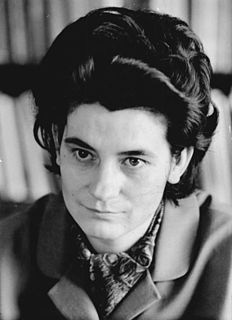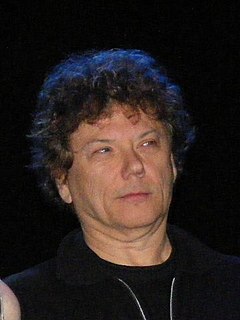A Quote by Ray Bradbury
I never consciously place symbolism in my writing. That would be a self-conscious exercise and self-consciousness is defeating to any creative act. Better to get the subconscious to do the work for you, and get out of the way. The best symbolism is always unsuspected and natural. During a lifetime, one saves up information which collects itself around centers in the mind; these automatically become symbols on a subliminal level and need only be summoned in the heat of writing.
Quote Topics
Act
Always
Any
Around
Automatically
Become
Best
Better
Centers
Conscious
Consciousness
Creative
Defeating
Exercise
Get
Heat
Information
Itself
Level
Lifetime
Mind
Natural
Need
Never
Only
Out
Place
Saves
Self
Self-Conscious
Subconscious
Subliminal
Symbolism
Symbols
Up
Way
Which
Work
Would
Would Be
Writing
Related Quotes
One can think of a secretary actively operating a filing system, of a librarian actively cataloguing books, of a computer actively sorting out information. The mind however does not actively sort out information. The information sorts itself out and organises itself into patterns. The mind is passive. The mind only provides an opportunity for the information to behave in this way. The mind provides a special environment in which information can become self-organising. This special environment is a memory surface with special characteristics.
Many people become self-conscious when they communicate. Whether it's writing or speaking, they are consumed by anxiety. Self-consciousness is an impediment to what is required to serve an audience effectively. One's goal must be to achieve audience consciousness. To put oneself in their place, to recognize that the value of any communication arises from how it is received by them, not by what it means to the author. Rather than learning a multiplicity of rules for speaking, for example, I would suggest that a focus on serving one's audience will simplify and clarify everything.
Now writing is just working your way toward the border that the innermost secret draws around itself, and to cross that line would mean self-destruction. But writing is also an attempt to respect the borderline only for the truly innermost secret, and bit by bit to free the taboos around that core, difficult to admit as they are, from their prison of unspeakability. Not self-destruction but self-redemption. Not being afraid of unavoidable suffering.
Simply put, meta-writing is writing that is self-conscious, self-reflective, and aware of itself as an artifice. The writer is aware she's writing, and she's aware there's a reader, which goes all the way back to Montaigne's often-used address "dear reader," or his brief introduction to Essais: "To the Reader." It can be done in a myriad of ways.
Skill in any performance whether it be in sports in playing the piano in conversation or in selling merchandise consists not in painfully and consciously thinking out each action as it is performed but in relaxing and letting the job do itself through you. Creative performance is spontaneous and ‘natural’ as opposed to self-conscious and studied.
I try to tell student writers to read as much as possible, not only literature but philosophy, theory, and to form obsessions. There's a big taboo in fiction creative writing workshops against using the self at all, and I think I try to encourage students to write the self, but to connect the self to something larger, which is to be this thinking, seeing, searching, eternally curious person, and that writing can come out of investigating and trying to understand confusion, and doubts, and obsessions.






































